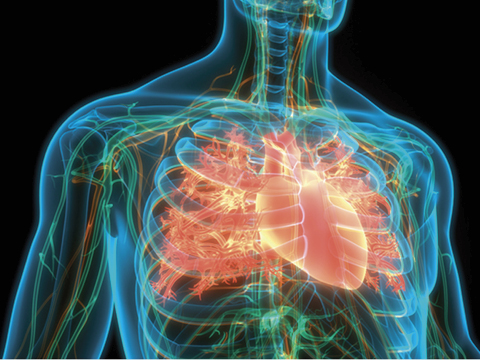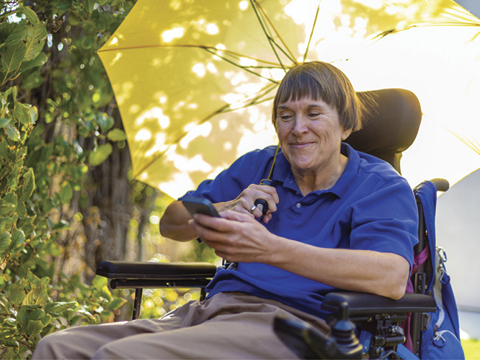

Chronic Obstructive Pulmonary Disease (COPD) is a progressive lung disease resulting from damage to the small airways in your lungs. As the disease progresses, patients often experience difficulty breathing due to reduced airflow in and out of the lungs.
Chronic Bronchitis and Emphysema are two of the most common chronic health conditions that contribute to COPD. Symptoms may not appear until after lung damage has occurred, and they usually worsen over time, particularly for those who do not stop smoking.
Therapy required to treat COPD may differ, depending on what stage of COPD you are in. For some, little therapy is needed (other than stopping smoking). For more advanced stages of COPD, additional therapy options may be prescribed. There are a variety of effective therapies, including medications, inhalers and nebulizers, and oxygen therapy. These treatments can help manage symptoms, reduce risk of complications and improve your ability to lead a more active life.

Breathing problems caused by sleep disorders, such as sleep apnea, affect millions of people each year. While symptoms range from mild to severe, if left untreated, sleep apnea can lead to high blood pressure and even heart attack or stroke.
Patients with sleep apnea stop breathing or breathe too shallow while sleeping. These breathing issues can cause interruptions in regular sleep patterns that can lead to headaches, sleepiness, dry mouth, sore throat, and difficulty paying attention.
Depending on its severity, sleep apnea can be controlled with lifestyle changes. However, many use CPAP or other mechanical solutions to help maintain regular breathing while sleeping.

One of the greatest risks facing Americans is Congestive Heart Failure (CHF). It is currently the second leading cause of death in the U.S. and affects millions of people every year.
A few common causes of heart failure are heart valve disease, high blood pressure, heart attack or congenital defect – but there are many more.
Some cases of CHF are reversible or short-term, like an acute infection. But for many other cases, there is no cure. Treatment options include lifestyle changes, medicines, surgery, and oxygen therapy.

Neuromuscular diseases can affect nerves that control voluntary muscles – the muscles that move body parts, like biceps, diaphragm, and hamstrings. They also can affect the nerves that communicate sensory information back to the brain.
There are many neuromuscular diseases, like Amyotrophic Lateral Sclerosis (ALS), Multiple Sclerosis (MS), and Muscular Dystrophy.
At this time, there are no cures for neuromuscular diseases. Delaying disease progression, treating symptoms, and enhancing health-related quality of life with medications, therapy, and surgery are currently the best therapy options.

Approximately 14,000,000 people are affected by neuromuscular diseases ranging from ALS and MS to Parkinson's Disease and Myasthenia Gravis. These illnesses can be difficult to manage. That's why Lincare’s clinical professionals are available to speak with patients diagnosed with a neuromuscular disease and assist their practitioners with developing individualized treatment options.